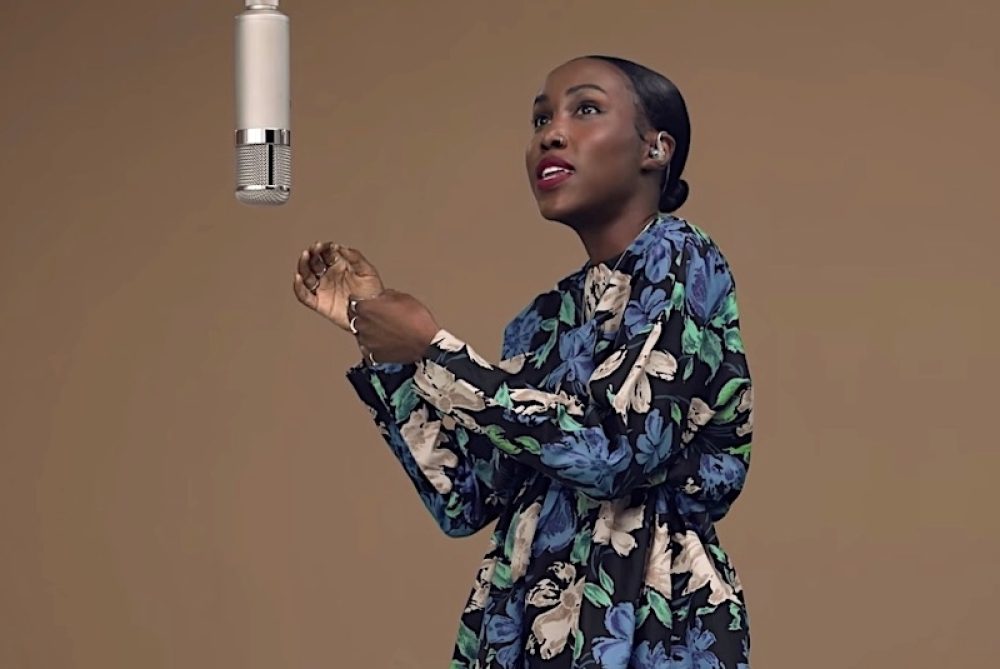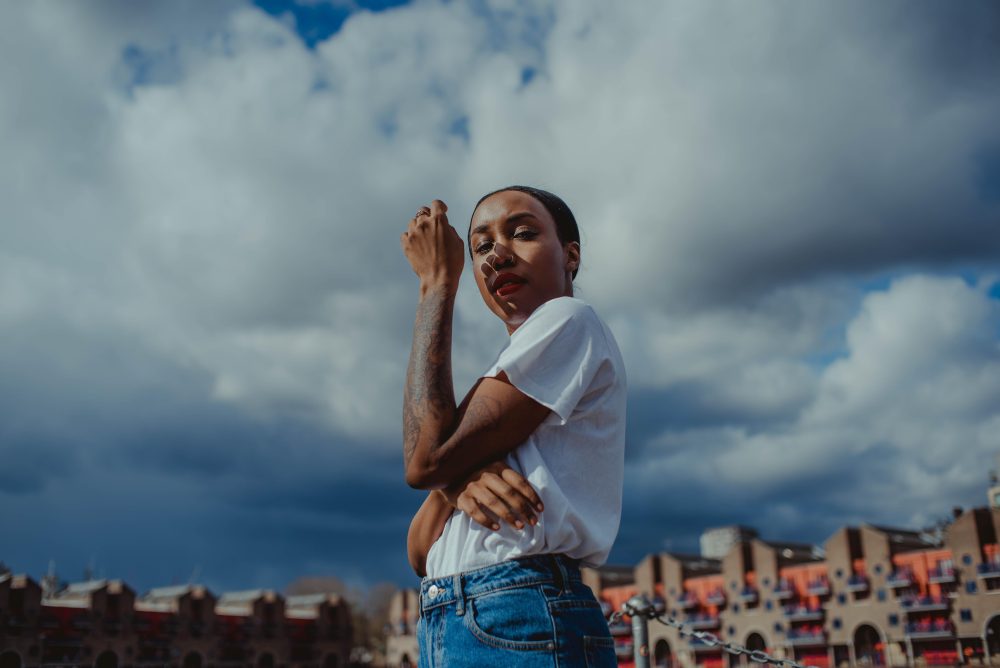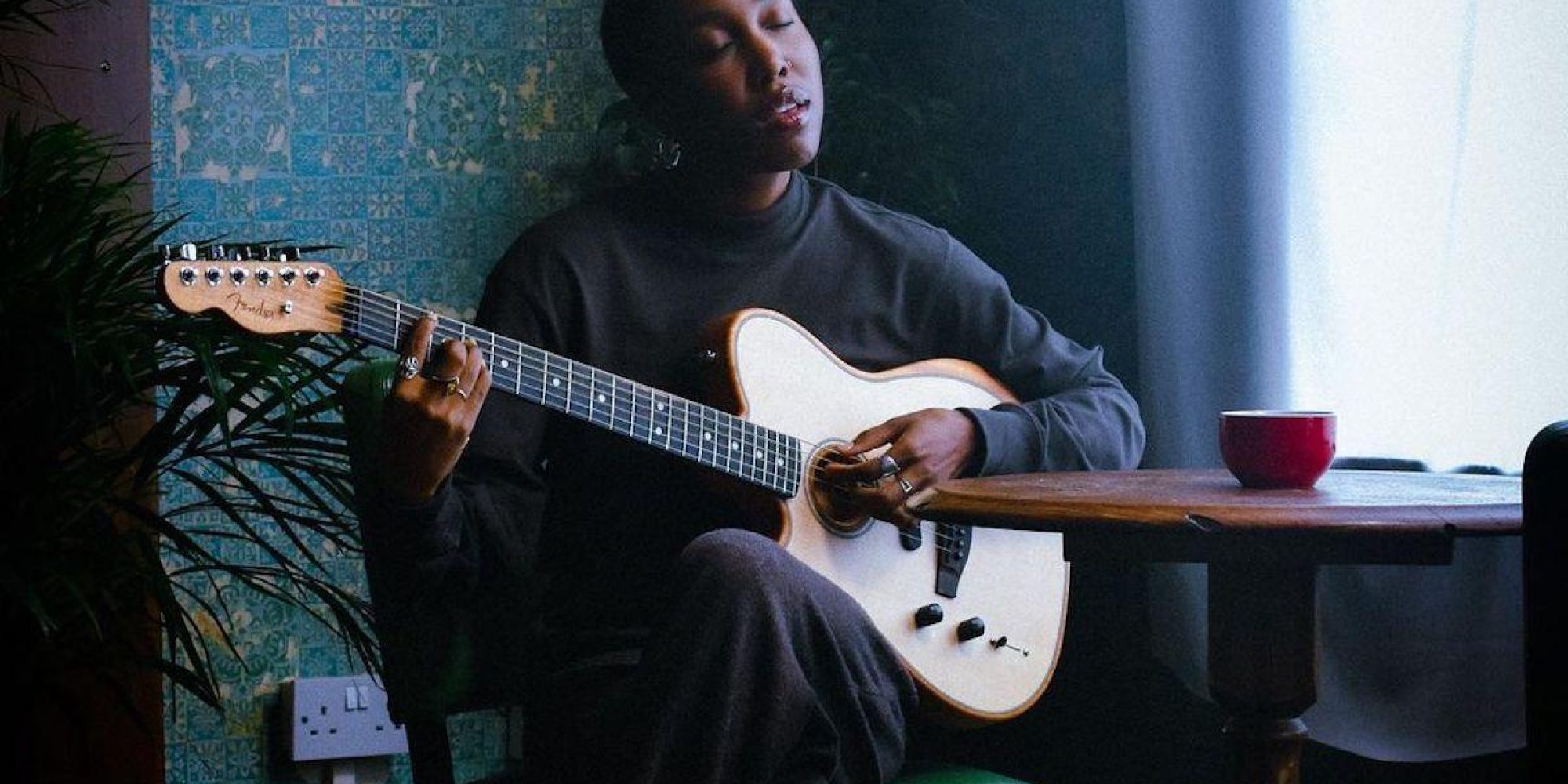
What's in a name? For jazz singer/songwriter Ego Ella May, it's a window into her rich heritage. Her first name, pronounced "eh-go," honors her Nigerian roots – her parents having emigrated from Nigeria. Her middle name pays homage to jazz legend Ella Fitzgerald, a family favorite who perhaps unknowingly set May on her musical path.
Born and raised in South London, May discovered her passion for singing, writing, and producing music in her late teens. Her journey began with the release of her first EP, "Breathing Underwater," in 2014, followed by her debut full-length LP, So Far, in 2019. But it was her 2020 album, Honey for Wounds, that truly announced her arrival on the jazz scene.
This album, a unique blend of R&B, neo-soul, hip-hop, and contemporary jazz, showcased May's deeply introspective lyrics and earned her the Best Jazz Act award at that year's MOBO ("Music Of Black Origin") Awards, as well as the Best Vocalist prize at the 2021 JAZZ FM Awards. Honey for Wounds also featured collaborations with key figures from the "South London Jazz Scene," including Alfa Mist and Theo Croker, both of whom performed at this year's International Festival de Jazz de Montreal – where we had the fortune to see May perform and sit down for an interview.
Despite these accolades, May maintains a humble perspective, considering herself more of an adjunct member of the South London Jazz Scene rather than a full-time participant. While she's regarded as one of the rising stars of her generation in the U.K., she's yet to make significant inroads across the Atlantic. However, her performance in Montreal marks what she hopes will be the first step towards a U.S. tour next year.
During the COVID lockdown, May channeled her creativity into a trilogy of EPs: Field Notes Parts I and II, released during the pandemic, and Field Notes Part III in 2023. These works beautifully capture the shared experiences of isolation, letting go, and the journey towards self-love that many faced during this challenging period.
May's music mirrors her personality – deeply introspective, shy, and introverted by nature. Yet, she's been remarkably open in interviews about her insecurities and her spiritual and emotional quest for inner peace. As we discussed, she continues to be surprised and moved by how her fans relate to the thoughts and feelings she expresses in her songs, creating a profound connection between artist and audience.

The interview has been edited for clarity and length.
To begin, I've read that you're a fan of Jill Scott, and I just wanted to let you know that I definitely heard that Jill Scott influence in your show earlier today.
You did? I love Jill Scott.
I know, me too. But also you've spoken of your love of Nina Simone, and I was like, "I don't know if I hear that." And then felt that the Nina Simone influence is more inside you. What do you think?
I think so, yeah, I definitely don't think I sound like Nina Simone, but she just has this effect on me. I'm just a massive fan. I'm an active listener of all things Nina Simone. She just touches me, I think that's what it is. It's in the things she speaks about. Her fearlessness. And also she's just quite vulnerable at the same. She gives off this energy of "I don't care what people say and all that," but also her music is just really vulnerable. It shows that softer side, as well. Just so many things. I've always just been so interested in Nina... and I love her.
So my first official question is how's the journey going?
(Laughs) The journey is interesting. There are moments when I still really doubt my abilities, but then there are moments, like what just happened today on stage, that make me remember to keep going. Because I just have such a love for it. I love sharing my music with people. I love being on stage with my band. And I love singing these songs. And it all just makes sense in the end – and sometimes I forget that. I forget in my own head because I'm so introverted that I have a lot of time to think.... Sometimes not always positive thoughts.
I think I'm always driving to understand myself more. And it's probably that introspective thing again where I just really want to, like, slow down and just understand things a bit more. I suppose it's that. So I focus a lot on self-care and my mental health and I really just make it a thing to prioritize, because I think, again, it helps me with my music. It helps me to be a better person, a better friend. And those are all things that are super important to me. So I really try to prioritize that.
There's something you said in an interview I read: "I see my role as an artist is to be aware of things that [people] would not normally pay as much attention to." And you do. So maybe being introverted allows you explore those things you're really so good at and putting those thoughts into song. Maybe that's part of the price you have pay for that gift.
Yeah, I do think I see it like that. I think before I really tried to be more confident or push that introverted side of me away. And I really think now I appreciate it so much more because I think it's what makes me a better writer. Or just that I do have the space to actually explore some of these things I feel. Or when I have conversations with other people I'm able to turn it into something, I suppose. I guess it was more so in my 20's when I was like "Oh, I shouldn't be staying at home, reading a book. I should out partying. I should be having the time of life." And then I thought, "You know what, actually? I am having the time of my life – escaping into a book, that's fine." And as I've gotten older, I really appreciate that introspective side now. And I've come to... mostly love it, dare I say? [Laughs]
I think a lot of these songs are definitely personal and I think I'm the only one that feels these things. So then I'm really scared to put it out. That people won't understand. And what's been really special is hearing people come up to me and say: "I feel that too" or "I haven't known how to express that or how quite to word it." And then I'm like "Wow! I'm not alone!" And in all these moments where I think it's personal, where I think it's just about me, it actually ends up that it's not. Other people feel that. Other people relate to it. And it becomes this thing where like "Wow, there's more of us. How comforting." You know?
Like at the show when you introduced the song "Girls Don't Always Sing About Boys," explaining how you were frustrated feeling a societal push to write love songs when you wanted to talk about other things, and this girl in the audience just shouted out in support of that thought.
Yeah, I thought I was the only one that was frustrated about just hearing love songs. And I was like: "There's so many other things that we, I talk about in my everyday life with people. Why are there all these popular songs about romantic love? Or having your heart broken?" There's so many other things that we all talk about, and I just kind of wrote in frustration and thought: "I'm sure no one else actually notices or cares." You know? But that song... the amount of people have been like "I think that too! We don't always talk about love! We're also talking about the things that we're annoyed about. We're talking about the things that we fear! We're talking about, you know, so many things!" And I was just like "Wow! Okay, that's cool. I'm not the only one that has frustration in that." So yeah, it's just it's just funny.
I also think that's probably why I'm like really into Nina Simone, as well, because she didn't just sing about love. There was a lot of resistance, a lot of political songs, and a lot of vulnerability. Of course, and love. I'm not saying I should never sing about love again, but I just think if that's not all we talk about in life, I don't think that should be the only thing that's reflected in music. That's it.
I know you've spoken about how Nigerian music, especially Afrobeat, has been an influence to you. Could you tell me how you see that influence?
I grew up listening to a lot of Afrobeat. I think it's kind of like the community aspect of it, where people are just playing for the sheer joy of music. That has always spoken to me. So I guess in that respect, that's what really inspires the instrumentation in my music. I think definitely in terms of instrumentation – one hundred percent – that history is there. And mostly I like the live side of things. But I would also like to explore it more – like making an Afrobeat-like themed song. That would be pretty special. I'm just not there yet. [Laughs] Not there yet.
But growing up, there was a lot of that in that house. And then we'd go to like a lot of Nigerian parties, and there was always just great music and dancing. So it's always been like a little soft spot for me. It just feels very nostalgic. I think that's the thing I'm like: "Oh, this reminds me of my childhood." And there are bands like Kokoroko doing important things in that space.
And you're working on a new album?
Yeah, I tried out a new song today. And it went well. I'm kind of just taking my time with it, which feels really nice. But also, because I don't really have a deadline, I feel like I could be working on it forever and that's what I don't want to do, so I might need to give myself a deadline. At the moment I'm just writing a lot, testing out songs here and there. And I'm hoping it will be out at some point next year.
Anything else?
Honestly, this is my first time at this festival and I'm just so blown away by so much good music. I just can't believe it. I'm just having a great time. I mean, just to be asked to the Montreal Jazz Festival was insane, I thought it was a joke. It was like: "Who's pranking me?" Yeah, I'm just floored. I'm really happy to be here.
Are you also touring the US this summer?
No, this is just the one off. So next year we'll be finally touring the U.S., and I can't wait.
Okay, then. We did good?
Yeah, we did good. Thank you.









